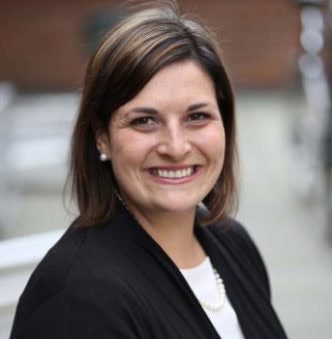A series of devastating natural disasters in 2017 brought attention to the fact that extreme weather events disproportionately affect underserved communities. Pre-existing vulnerabilities in communities ravaged by Hurricanes Harvey, Maria and Irma were amplified following these events. Yet, our understanding of the health and societal impacts of natural disasters remains underdeveloped.
To better serve these and all communities, we must fortify the evidence needed to make informed decisions following disasters by conducting research on current recovery efforts.
 Dr. Nicole Errett
Dr. Nicole ErrettDisaster research should be responsive to the needs of communities and leverage, seek to sustain, and even grow existing trusted relationships between academics and community partners. Designing disaster research requires a culturally competent and community-engaged approach, including developing and using a process to receive input and feedback from the community at all stages of research, as well as a commitment to timely translation of findings — some of which may have important implications for a community’s health and well-being.
Researchers from historically disadvantaged backgrounds, or those underrepresented in the academic realm, can serve a critical role in advancing disaster science due to their familiarity with the issues faced by communities most vulnerable to disaster, as well as through their relationships with members and leaders of those communities.
My colleague Dr. Uriyoán Colón-Ramos’ work in Puerto Rico after Hurricane Maria is a great example of this approach in action. Colón-Ramos is a public health nutritionist who grew up in Puerto Rico. She traveled there after the hurricane to assess the nutritional content and cultural relevance of meals provided by the federal government and donors who stepped in as part of the recovery effort.
Due to her prior connections and relationships within a small community, Colón-Ramos quickly gained trust and access to the information, people and places necessary to conduct her research. She used her personal and professional connections to identify ways to leverage her expertise and develop research that could be meaningful for those affected and responsive to their needs. Her familiarity with the area and local contacts also provided her with practical knowledge she needed to get the job done, from information about transportation routes to how to access distribution centers. She employed local students as research assistants along the way.
Because of her access to these resources, she gathered a significant amount of data from food distribution centers – 96 venues in less than a week! – that can inform future disaster response and recovery efforts.
We need more researchers like Colón-Ramos to draw upon connections and familiarity to understand a community in crisis and design a response that meets its needs. Minority researchers are still underrepresented in the academy, so we must continue to invest in scholars who come from diverse backgrounds.
Initiatives such as the Robert Wood Johnson Foundation’s New Connections program and the National Science Foundation-funded Minority Scholars from Under-Represented Groups in Engineering and the Social Sciences (SURGE) Capacity in Disasters program are doing just that. New Connections supports scholars from historically disadvantaged or underrepresented backgrounds in the academy through grants, networking, and skill-building. This program has helped me, a first-generation college graduate, advance my research on incorporating health and well-being promotion activities into disaster-recovery planning and implementation. The Minority SURGE Capacity in Disasters program targets emerging scholars earlier in their development to increase representation of racial and ethnic minorities in hazards and disaster research, with the concurrent aim of addressing the disproportionate impact of disasters on underserved racial and ethnic minorities.
Due to climate change and urbanization, we can expect more frequent and severe disasters in the years to come. The need for disaster research — and underrepresented scholars to plan and execute it — has never been greater.
Dr. Nicole A. Errett is a disaster researcher and lecturer at the University of Washington School of Public Health. She is a grantee of New Connections, a Robert Wood Johnson Foundation program that supports underrepresented researchers.





















